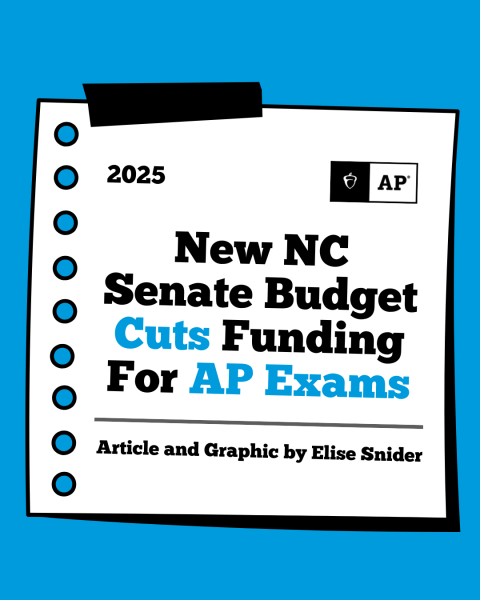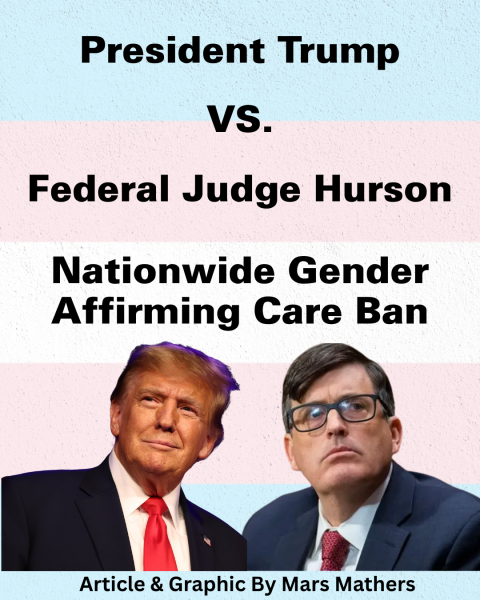NC 2022: Meet the Primary Election Candidates
Richard Burr, one of North Carolina’s U.S. senators, has pledged to retire after serving three terms, making North Carolina one of the five states that has a Republican senator who is set to retire in 2022.
This senatorial election is like no other in North Carolina’s history, as Cal Cunningham’s failed senate run and Raphael Warnock and Jon Ossof’s victories in Georgia are still fresh on the minds of voters. Warnock and Ossof’s surprising victories in Georgia allowed Democrats to hold a majority in the Senate, with 50 Democrats and a tie-breaker vote from Vice President Kamala Harris. A Democratic victory in North Carolina would help to solidify the Democratic majority in the senate.
Although party primary elections occur in March, now is the perfect time to become familiar with the candidates and their platforms.
The Democratic primary is filled with candidates spanning from all sides of the Democratic Party. The current frontrunner, according to Public Policy Polling and Cardinal Point Analytics, is former Chief Justice of the North Carolina Supreme Court, Cheri Beasley. Beasley is a moderate, this being her first partisan election, she has barely given any answers as to what her platform will consist of. Some of her key issues as chief justice were protecting reproductive rights, expand access to healthcare and education, and she has openly supported raising the minimum wage to 15 dollars an hour. Beasley is the most-endorsed candidate in the Democratic primary with endorsements from Senator Kirsten Gillibrand (NY), Representative Alma Adams (NC-12), the Congressional Black Caucus, Democracy for America, and EMILY’s List.
The second best polling candidate in the Democratic primary is Jeff Jackson, a current state senator from Mecklenburg County. Jackson is a Major in the North Carolina National Guard and his platform is centered around mainstream democratic values, such as expanding Medicaid, transferring to renewable energy, increased funding for public housing and other welfare, gun reform, and protecting Roe v. Wade. Jackson held his eye-catching “100 Town Halls, 100 Days” campaign over the summer of 2021, holding town halls in all of North Carolina’s one hundred counties within one hundred days. He has been criticized by progressives and fellow candidates, most notably Erica Smith, for being too moderate on some issues and being too similar to Cal Cunningham, the moderate democratic senate nominee, and veteran who lost to Thom Tillis after his approval tanked due to leaked sexual text messages between him and a woman whom he was not married to.
The third best polling and most progressive candidate in this Democratic primary is Erica Smith. Erica Smith is a former state senator (2015-2021), engineer, minister, and ran against Cal Cunningham in the 2020 Democratic primary to challenge Senator Thom Tillis. Smith is running a bold platform centered around uplifting rural communities, expanding womens’ reproductive rights, confronting racial injustice, providing universal healthcare, introducing common-sense gun reform on the national level, canceling student loan debt, and many more issues. Smith is an environmentalist, citing her upbringing on a farm, she endorses the Green New Deal. Erica Smith is endorsed by Marianne Williamson, a candidate for the Democratic nomination for the 2020 presidential election.
It is very likely that one of these three candidates will secure the democratic nomination. The other candidates in this election are Chrelle Booker, Keith Davenport, Ava Edwards, Tobias LaGrone, Rett Newton, and Richard Watkins.
On the other side of the aisle, the Republican primary is just as competitive. Announcing his campaign in April, former Governor Pat McCrory is leading all Republican primary polls. Although McCrory is a strong defender of former President Donald Trump, Trump said, “You can’t pick people that have already lost two races, that do not stand for our values,” when regarding McCrory at a North Carolina Republican Party convention in Greenville on June 5th, 2021. McCrory lost his first gubernatorial run in 2008 and lost his re-election in 2016 to Governor Roy Cooper. McCrory is endorsed by Senator Richard Burr. McCrory’s platform consists of increased Iron Dome funding (Israel’s missile defense system), increased funding for education, giving healthcare providers the power to deny access to abortion, and supports anti-discrimination laws.
The second-best polling and most endorsed candidate out of both Democratic and Republican primaries is Ted Budd, a U.S. Representative for NC-13 since 2017. Budd is endorsed by former President Donald Trump, Mark Meadows, a former representative and White House Chief of Staff under the Trump-Pence Administration, Dan Bishop, a U.S. Representative for NC-9, George Holding, a former U.S. representative for NC-2, Lara Trump, and Club for Growth, a billionaire-lead conservative organization that’s main goal is to cut taxes. Budd’s platform consists mainly of easing gun restrictions, restricting access to abortion, expanding broadband access, and providing more support for homeschooling parents. Budd was one of the 147 Republican congressmen to object to the certification of electoral votes to confirm Joe Biden’s presidential victory in the 2020 election.
The third-best polling and first major candidate to announce his bid in the Republican primary is Mark Walker, a former U.S. representative for NC-06 from 2015 to 2021. Walker is known for his very conservative stances, being a promoter of House Bill 2, and a critic of the Affordable Care Act, the Violence Against Women Act, and Obamacare. Walker is a vocal denier of the 2020 presidential election results. Legislation that Walker supports is providing more funding for HBCUs, imposing regular child tax credits, ending political amnesty, introducing anti-human trafficking legislation, and restricting access to abortion.
There are many other candidates in the Republican primary, although it is very unlikely that any of them will have a chance at the nomination since these three candidates are already so competitive. Some of the other candidates are Jen Banwart, John “Marty” Cooke, and Kenneth Harper.
Out of the five states that have retiring Republican senators, North Carolina joins Pennsylvania as the only two states that don’t have “Solid Republican” or “Likely Republican” rankings, based on data collected from The Cook Political Report, Inside Elections, and Sabato’s Crystal Ball. They are both listed as “Toss Up” or “Battleground” states for their complex electoral histories.
This election is paramount for both the Democratic and Republican parties, as the Democratic party wants to solidify their minimum majority in the Senate and the Republican party wants to keep their seats in the states in which they have retiring senators. These upcoming elections have become increasingly imperative to the Democratic Party, as their biggest and boldest legislation has been shot down by fellow Democratic Senators Joe Manchin and Kyrsten Sinema in the past months.
While it is early in the election process, candidacy ads and town halls are already beginning. Now is an excellent time to become familiar with these candidates and to watch their platforms grow ahead of the primary elections in March.

(He/him)
Matthew is a senior and is very excited to be the news editor this year! He loves writing about political issues and local news. Outside of...








Delilah Jones • Nov 3, 2022 at 9:06 AM
We don’t need Sheri Beasley as governor or Ted Bud not much of a choice !